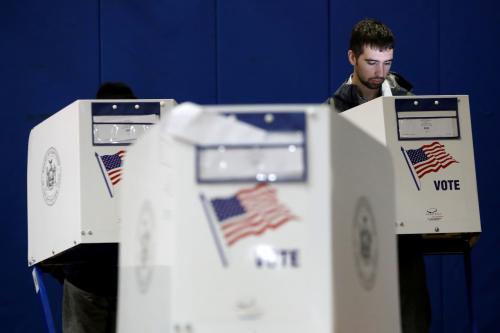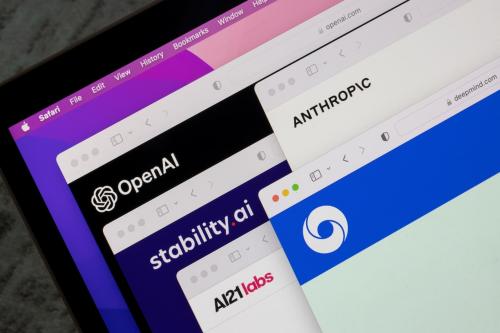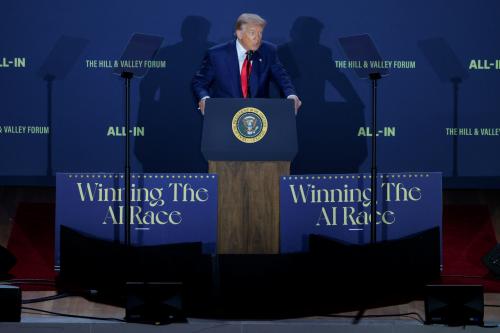TechTank, a biweekly podcast from the Center for Technology Innovation at Brookings, explores today’s most consequential technology issues. Moderators Nicol Turner Lee and Darrell West speak with experts and policymakers to share data, ideas, and policy solutions that address the challenges of our digital world.
Recent advancements in AI-generated content are revolutionizing the landscape of election campaigns, exemplified by the use of Deepfakes and AI-generated voices. This trend signals some worrisome developments facilitated by the swift evolution of digital technology, equipping politicians with innovative and rapid tools for political messaging while also enhancing the capacity to manufacture fake images. Gone are the days of simple photo manipulation; we are now entering an era marked by extensive digital content creation and dissemination. This shift blurs the lines between real and fake content, presenting significant challenges on both sides of the political aisle. With a major election rapidly approaching, many political figures are increasingly vocal about their concerns regarding the use of AI in campaign strategies. As the influence of artificial intelligence continues to grow, it has become a focal point for discussions on the security and integrity of electoral processes. Notably, members of Congress have taken their concerns directly to tech industry leaders, such as Meta, X, and YouTube. They have raised alarm about the possibility of AI-generated political ads, sparking debates on transparency, accountability, and the need for regulatory measures to ensure the transparency and authenticity of political discourse in this new era of politics. The combination of AI’s rapid response capabilities and the likely closeness of the looming election underscores the urgency of addressing these issues soon in order to preserve the integrity of democratic processes and maintain public trust in the political landscape. In this episode of The TechTank Podcast, co-host Darrell West engages in a conversation with Elaine Kamarck, the founding director of the Center for Effective Public Management and a senior fellow in Governance Studies at the Brookings Institution. Together, they explore the transformative impact of AI on the political landscape and what lies ahead for the upcoming election. You can listen to the episode and subscribe to the TechTank podcast on Apple, Spotify, or Acast.
-
Acknowledgements and disclosures
Meta is a general, unrestricted donor to the Brookings Institution. The findings, interpretations, and conclusions posted in this piece are solely those of the author and are not influenced by any donation.
The Brookings Institution is committed to quality, independence, and impact.
We are supported by a diverse array of funders. In line with our values and policies, each Brookings publication represents the sole views of its author(s).












Commentary
PodcastAI will affect the 2024 elections | The TechTank Podcast
Listen on
November 6, 2023